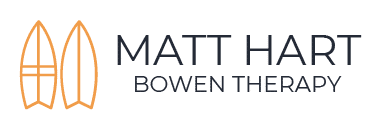
Bowen Therapy and Concussion Recovery
Rebalance. Reset. Renew!
Can Bowen therapy help with concussion recovery?
Can Bowen therapy help concussion recovery?
Can Bowen therapy help with concussion recovery?
Just been told you have a concussion?
You’re now here and wondering can Bowen therapy help with concussion recovery? As you’ll read below there are some examples where this is the case.
Firstly, let’s look at what we are dealing with. In a consensus statement on concussion in sport, from the 6th International Conference on Concussion in Sport– Amsterdam, October 2022, it was agreed that Sport-related concussion is a traumatic brain injury caused by a direct blow to the head, neck or body resulting in an impulsive force being transmitted to the brain that occurs in sports and exercise-related activities.[1]
It is an injury to the brain, resulting in a disturbance of brain function. It causes short-lived neurological impairment and the symptoms may evolve over the hours or days following the injury.[2]
In my research and experience working with footballers and clients this year, concussion recovery varies greatly from person to person.
The Graded Return to Sport Framework (GRTSF) requires those aged 18 or under to be symptom-free for 14 days prior to medical clearance to return to contact or high-risk activity.[3]
| Concussion Modifiers | |
|---|---|
| Factor | Modifier |
| Symptoms |
Number, Duration(>10 days), Severity |
| Signs |
Prolonged loss of consciousness (>1 min), Amnesia |
| Sequelae | Concussive convulsions |
| Temporal |
Frequency—repeated concussions over time Timing—injuries close together in time Recency’—recent concussion or traumatic brain injury |
| Age | Child and adolescent (<18 years old) |
| Comorbidities and premorbidities | Migraine, depression or other mental health disorders, attention deficit hyperactivity disorder, learning disabilities, sleep disorders |
| Medication | Psychoactive drugs, anticaogulants |
| Behaviour | Dangerous style of play |
| Sport | High risk activity, contact and collision sport, high sporting level |
Makdissi M, Davis G, Jordan B, et al
Revisiting the modifiers: how should the evaluation and management of acute concussions differ in specific groups?
British Journal of Sports Medicine 2013;47:314-320. [4]
Bowen Concussion Recovery Protocol
Bowen concussion recovery has been used for 17 years to get athletes back to feeling normal, back to school, work and sport. It was developed by Bowen Practitioner Craig Mattimoe in the USA and used regularly to treat sports concussions in the US and British Columbia Canada. It is currently considered the only therapeutic treatment for concussion.
The protocol addresses various areas affected by head trauma including but not limited to; the visual system, neuromuscular dysfunction, blood flow and circulation, lymphatics, and structural imbalances. [5]
When treating players this year they have described their concussion symptoms in the following ways
- Feel strange
- Don’t feel myself
- Foggy
- Slow
- Lacking concentration
- Brain sloshing about
- I can’t explain it, I just know I’m not quite right.
- I am not up to driving
- Can’t focus
- I was feeling good, then I went for a run then I started to get headachey
- Sad for no reason
- Crying easily
There is Hope
The Bowen treatments address the systems above and help speed up the resolution of the poor brain function caused by the injury.
The gentle nature of the Bowen movements, their specific locations and time between movements all play a positive roles in providing stimulus to your body that promotes healing that fits within the rest type of recovery that concussions generally require.
This is how players and clients have described themselves after receiving the Bowen Recovery Protocol treatment.
Clearer
Head more solid
Sinus pressure cleared
Feel better
More like myself
Balanced
Matt

[1] Patricios, J. S., Schneider, K. J., Dvorak, J., Ahmed, O. H., Blauwet, C., Cantu, R. C., Davis, G. A., Echemendia, R. J., Makdissi, M., McNamee, M., Broglio, S., Emery, C. A., Feddermann-Demont, N., Fuller, G. W., Giza, C. C., Guskiewicz, K. M., Hainline, B., Iverson, G. L., Kutcher, J. S., … Meeuwisse, W. (2023). Consensus statement on concussion in sport: the 6th International Conference on Concussion in Sport-Amsterdam, October 2022. British Journal of Sports Medicine, 57(11), 695–711. https://doi.org/10.1136/bjsports-2023-106898
[2] Aspetar – Sports concussion. (n.d.). Retrieved September 4, 2023, from sports-concussion
[3] Concussion and Brain Health Position Statement 2023. (2023). Australian Sports Commission
https://www.concussioninsport.gov.au/
[4] Makdissi, M., Davis, G., Jordan, B., Patricios, J., Purcell, L., & Putukian, M. (n.d.). Revisiting the modifiers: how should the evaluation and management of acute concussions differ in specific groups? https://doi.org/10.1136/bjsports-2013
[5] Mattimoe, C. (2005). Bowen as Sports Medicine-Safely Resolving Post-Concussion Syndrome (PCS). http://www.bowtech.com/WebsiteProj/documents/1701-Post_Concussion_Syndrome.pdf
[6] Post Concussion Treatment – Victoria BC – Concussion Resolution – Concussion Resolution. (n.d.). Retrieved September 8, 2023, from https://concussionresolution.com/
Other Interesting Articles/Research
Queensland, T. (n.d.). THE BRAIN SERIES IS BROUGHT TO YOU The BRAIN Issue One. www.qbi.uq.edu.au/concussion
Kara, S., Crosswell, H., Forch, K., Cavadino, A., McGeown, J., & Fulcher, M. (2020). Less Than Half of Patients Recover Within 2 Weeks of Injury after a Sports-Related Mild Traumatic Brain Injury: A 2-Year Prospective Study. Clinical Journal of Sport Medicine, 30(2), 96–101. https://doi.org/10.1097/JSM.0000000000000811
